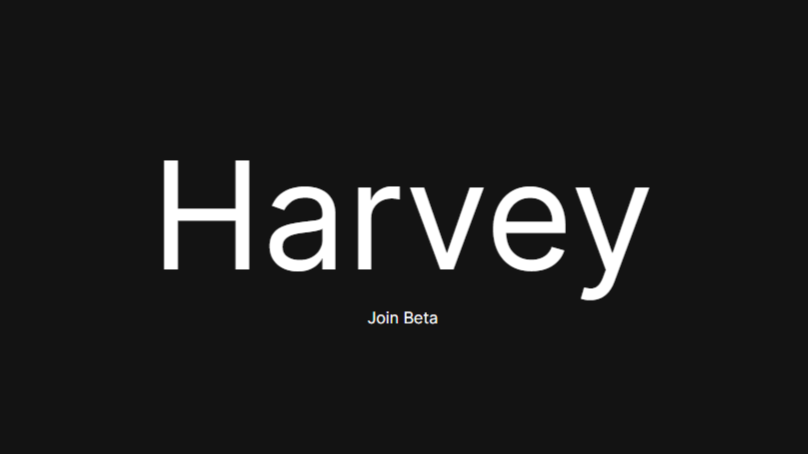
A hitherto stealth legal AI startup emerged from the shadows today with news via TechCrunch that it has raised $5 million in funding led by the startup fund of OpenAI, the company that developed advanced neural network AI systems such as GPT-3 and DALL-E 2.
The startup, called Harvey, will build on the GPT-3 technology to enable lawyers to create legal documents or perform legal research by providing simple instructions using natural language.
The company was founded by Winston Weinberg, formerly an associate at law firm O’Melveny & Myers, and Gabriel Pereyra, formerly a research scientist at DeepMind and most recently a machine learning engineer at Meta AI.
The funding was led by the OpenAI Startup Fund, through which OpenAI and its partners are investing in early-stage AI companies that it believes will “have a profound, positive impact on the world.”
Although the company has come out of stealth in announcing its financing, Pereyra and Weinberg are not prepared to show their product to the public.
However, I can tell you that I have seen an early version of the product under embargo, and that I think that, when the product is released, it will have been well worth the wait, and could potentially be a game-changer.
I am unable to say more about the product at this point. The TechCrunch article includes this quote from Pereyra:
“We want Harvey to serve as an intermediary between tech and lawyer, as a natural language interface to the law,” he said. “Harvey will make lawyers more efficient, allowing them to produce higher quality work and spend more time on the high value parts of their job. Harvey provides a unified and intuitive interface for all legal workflows, allowing lawyers to describe tasks in plain English instead of using a suite of complex and specialized tools for niche tasks.”
In an email to me, Pereyra elaborated:
“Our goal is not to compete with existing legal tech (such as Westlaw or LexisNexis) or to replace lawyers, but instead to make them work together more seamlessly. We want Harvey to serve as an intermediary between tech and lawyer, as a natural language interface to the law. We see a future where every lawyer is a partner — able to delegate the busy work of the legal profession to Harvey and focus on the creative aspects of the job and what matters most, their clients.”
Pereyra also provided me with three quotes from lawyers who have seen the product’s beta version:
“In the new AI tool, known as ‘Harvey’, there is the potential to help deliver more high-quality, life-saving and life-affirming legal services to those low-income communities in need of representation so as to protect their access to justice, and their access to the basic necessities of life. Only through the legal system can those most in need be ensured these most fundamental democratic values. I am so inspired by the generosity of the developers of this unique program to make this potentially invaluable new asset available, free of charge, to the legal aid organizations who work so hard every day to close this devastating justice gap. It is a remarkable gift of justice and fairness.”–David Lash, managing counsel for Pro Bono and Public Interest Services at O’Melveny & Myers LLP. (Lash said this reflects his personal opinion only and that it is not attributable to his firm, which is named for identification purposes only.)
“Lawyers at Quinn Emanuel are using an early version, and Harvey is incredibly promising and represents the future of best-in-class generative AI companies.”–Sam Stake, partner and co-chair of the AI Practice Group at Quinn Emanuel.
“AI has the power to disrupt the legal profession and fundamentally improve how lawyers add value. Harvey’s offering, even though in its early stages, already shows incredible promise in making lawyers more impactful and efficient, and has the potential to materially lower legal research fees for in-house legal departments and law firms alike.”–John LaBarre, deputy general counsel at Snowflake Inc.
Stay tuned for further developments.